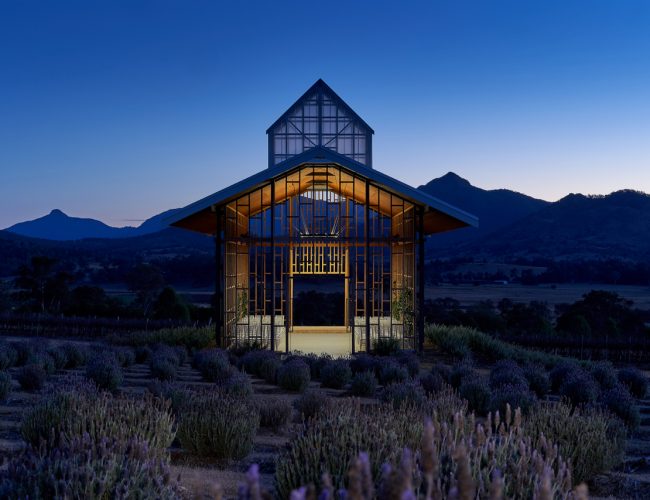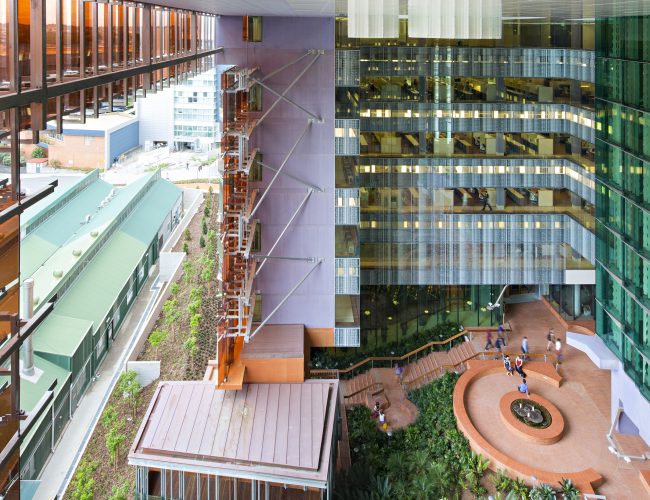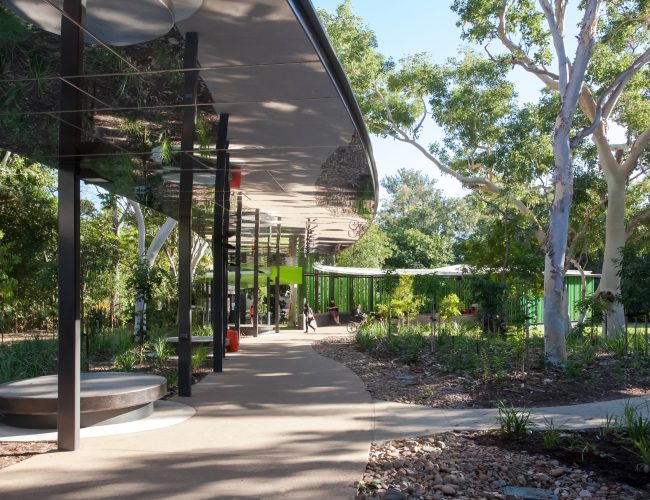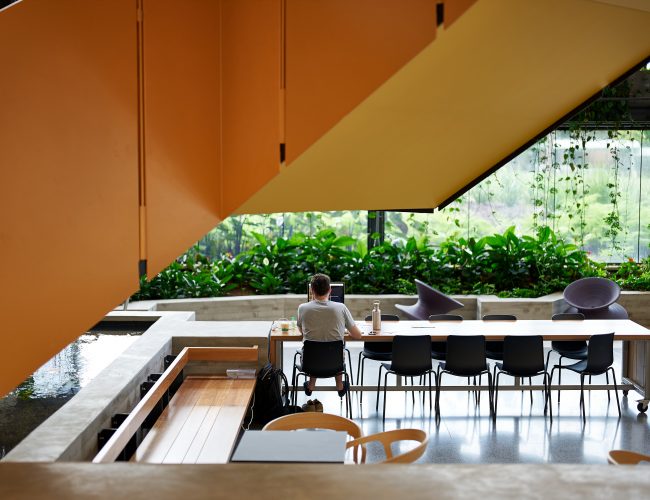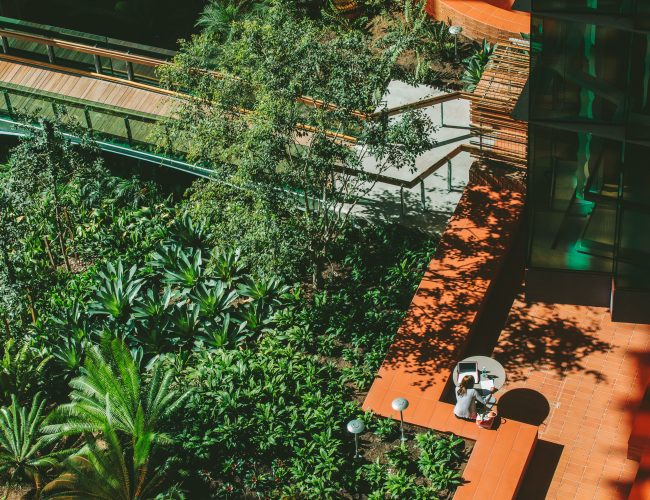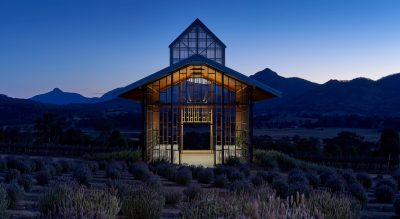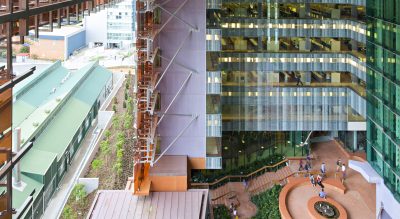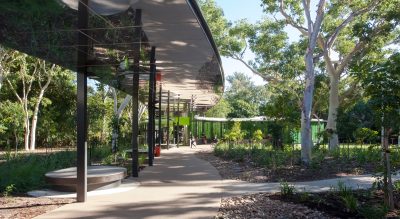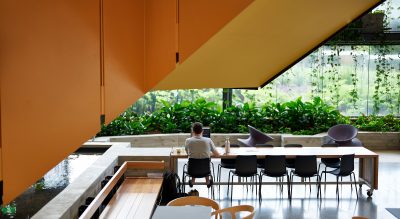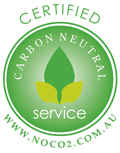Wilson Architects is a design-focused practice based in Brisbane for over 138 years. Combining architecture, interior design and landscape architecture, we create exceptional places for life to flourish. As a practice, we are recognised for our expertise in the innovative design of teaching and learning environments, scientific research and laboratory design, as well as cultural and adaptive re-use projects.
Recognising that buildings currently contribute over 30% of total greenhouse gas emissions, Wilson Architects has committed to a sustainable approach to building design and practice management. Growing public awareness concerning the responsible consumption of energy and resources warrants the adoption of an environmentally sustainable attitude to architecture as a demonstration of responsible global citizenship.
Working within economic constraints, a series of strategies can be explored, seeing benefits in areas such as longer building life cycles, lower running costs and increased occupant satisfaction and well-being. Our genuine commitment to environmental integrity in our industry is achieved through sustainable initiatives in the delivery of design, extending to proactive and informed discussions with clients, and operations of our practice individually and collectively.
Our JCU Ideas Lab for James Cook University (Wilson Architects + Clarke and Prince Architects) was designed to meet the gold standard of LEED (Leadership in Energy and Environmental Design) and was awarded the 2021 Australian Institute of Architects’ Harry Marks Award for Sustainable Architecture. Similarly, the Peter Coaldrake Education Precinct for the Queensland University of Technology was awarded the 2020 Australian Institute of Architects’ Queensland Award for Sustainable Architecture.
Wilson Architects has been certified for ISO 14001:2004 – Environmental Management Systems since 2001, and developed our own office management system, which analyses, develops and integrates ecologically sustainable design principles into all current projects and practice operations. In 2020, Wilson Architects joined a global movement of organisations to pave the way for a greener construction industry and made a commitment to achieve carbon neutrality. By meeting the requirements of the NoCO2 Program in 2022, Wilson Architects is certified as a Carbon Neutral Business by CRI.
What does NoCO2 Certification mean?
By meeting the requirements of the NoCO2 Program, Wilson Architects are certified as a Carbon Neutral business by CRI; can be promoted and marketed as such and can display the NoCO2 Logo issued by CRI. To achieve this status and become carbon neutral Wilson Architects undertook the following process:
- Commissioned a NoCO2 audit from CRI to measure their carbon footprint for FY2021. CRI’s NoCO2 audit follows the standards outlined by the World Business Council for Sustainable Development’s Greenhouse Gas Protocol Corporate Accounting and Reporting Standard (1), in addition to the international standard ISO 14064.1 (2).
- Have committed to offset their unavoidable emissions through the purchase of units in approved projects under the Verified Carbon Standard (VCS) and Gold Standard, and
- Committed to ongoing annual auditing of their emissions.
What Carbon Credit Projects does Wilson Architects purchase offsets from?
India Clean Energy from Biomass
The aim of Biomass projects is to utilize agricultural waste or other non-renewable biomass residues as fuel to generate power and to lower the plant’s dependence on the local grid for electricity. Before the implementation of the project, the electricity needs of such plants were met by power from a coal-dominated grid. To meet the rising energy demands in production, a new efficient biomass boiler was installed together with a steam turbine, producing both steam and electricity. The new boilers are fuelled with locally available agricultural waste instead of traditional, emission-intensive coal.
Before the start of the project, these agricultural residues were not used. They were either burned without harnessing the resulting thermal energy or simply left to decay, thereby generating methane emissions. The plant’s steam and electricity requirements can be now supplied by the new cogeneration unit. The investment required for the installation of the new cogeneration unit could not have been raised were it not for the revenue from sales of carbon credits.
